Close UP
NPO Bosai Community Network ~Expanding the Circle of Connection in the Community Through Disaster Preparedness~
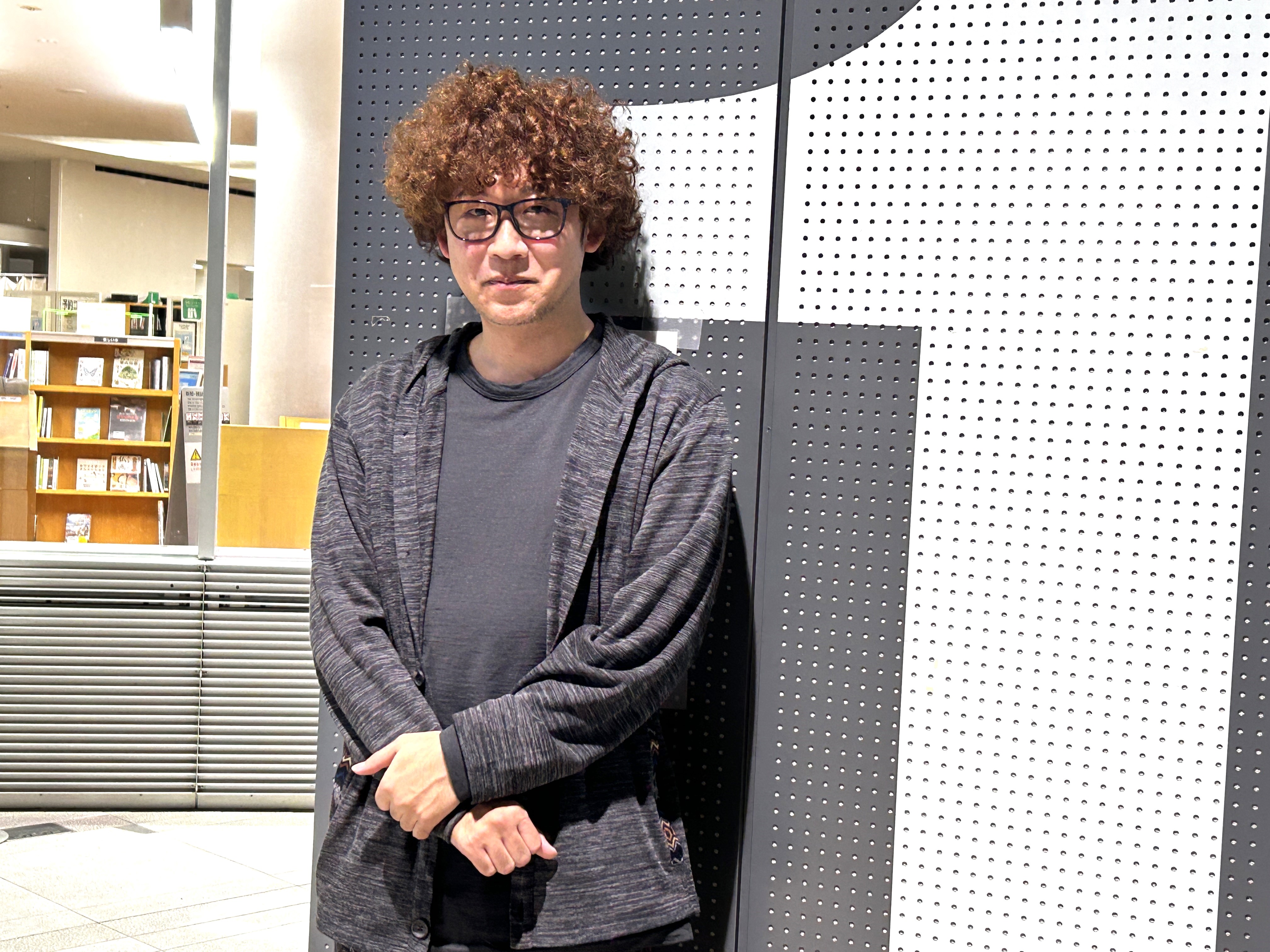
NPO Bosai Community Network is an organization that aims to form communities connected by disaster preparedness (bosai) - a common issue for Tokyo's residents - while developing educational and community projects related to disaster preparedness in various areas in Tokyo.
NPO Bosai Community Network conducts disaster preparedness activities that can be participated in "casually, easily, and happily" in various regions, such as community cleanup programs that adopt a disaster preparedness perspective, city walks, and a children's cafeteria that uses emergency rations. We interviewed Mr. Takahiro Uto, one of the founders of the organization.
The approach of Community Development x Disaster Preparedness
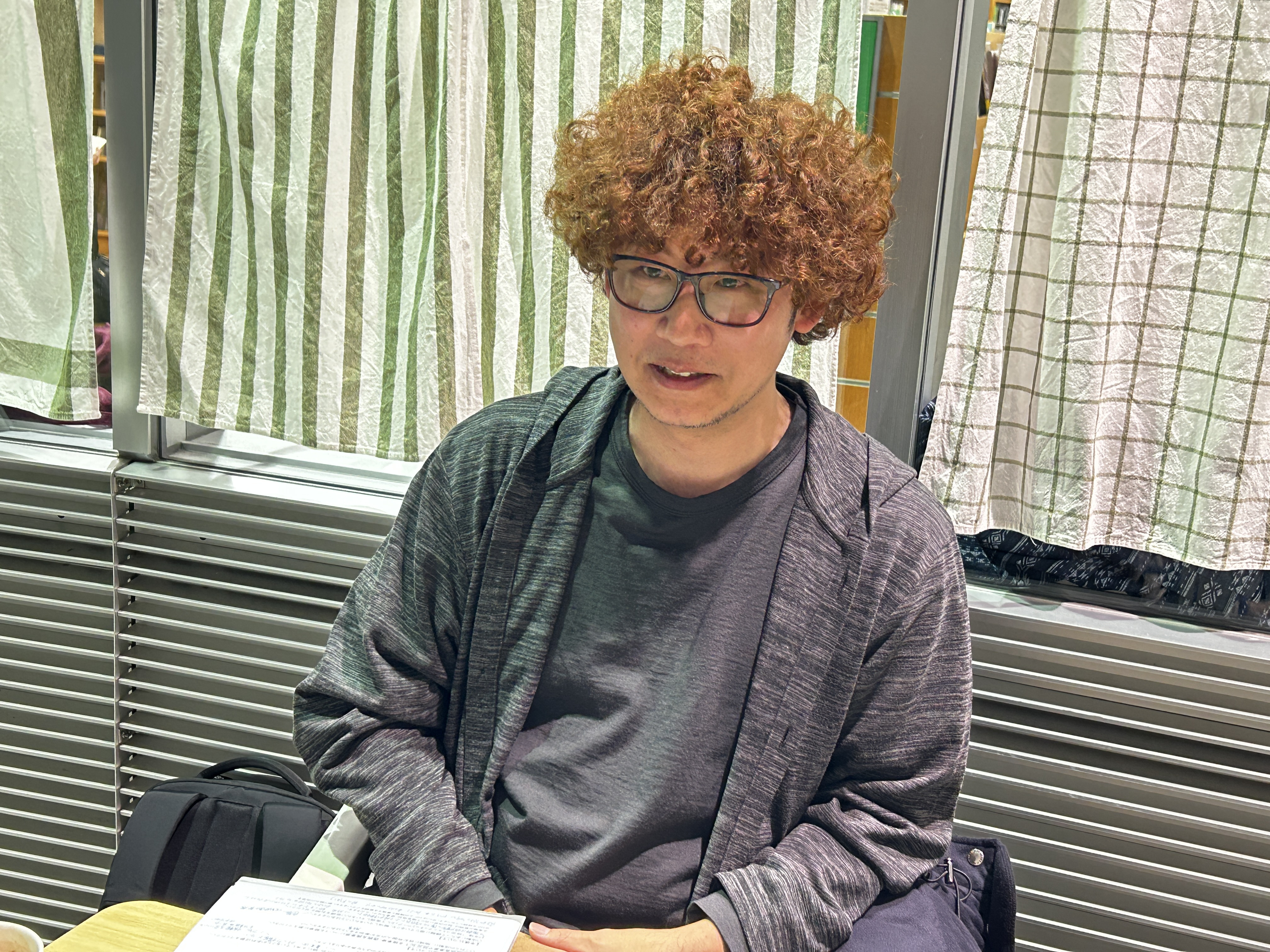
The Bosai Community Network has four pillars of business: disaster preparedness ICT (Information and Communication Technology) support projects, disaster preparedness education projects, and reconstruction support projects. The Bosai Community Network is committed to building a community and its network through disaster preparedness activities while implementing various programs within these four pillars. Mr. Kazuki Masumura, the chairperson of the board of directors, and Mr. Takahiro Uto, who studied community development together in graduate school as part of their policy studies, focused on disaster preparedness as a measure for community building.
"Disaster preparedness is a common challenge for all community residents, regardless of age or nationality. And we believe that the best preparation for a disaster, that could happen at any time, is (building) connection between people," says Mr. Uto.
They established the organization in 2018 and made it a non-profit organization in 2019 to carry out community building involving disaster preparedness. The organization currently has 4 core members and about 10 members in total. Under the slogan of "Let's Bosai Project," they aim to create a strong community by increasing the number of people involved in disaster preparedness through various casual, easy, and fun experiences.
Reduce the number of people who are under-informed and increase their capacity for self-help.
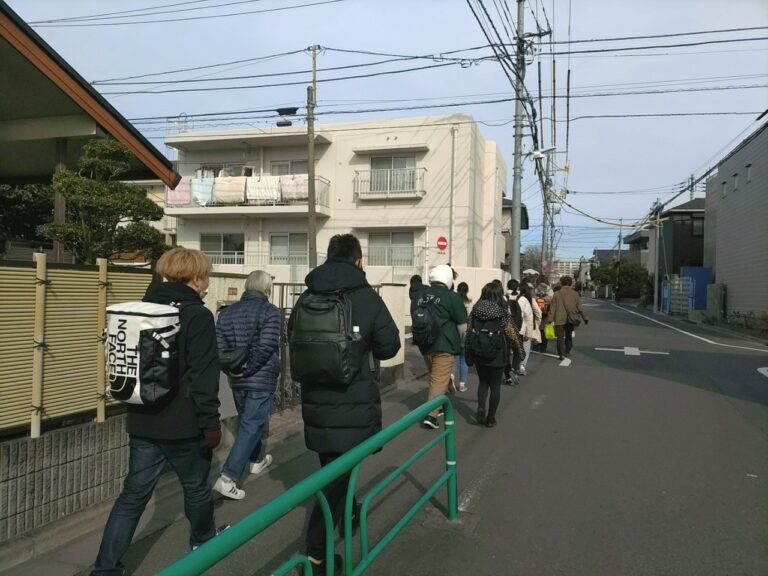
Photo Courtesy: Bosai Community Network
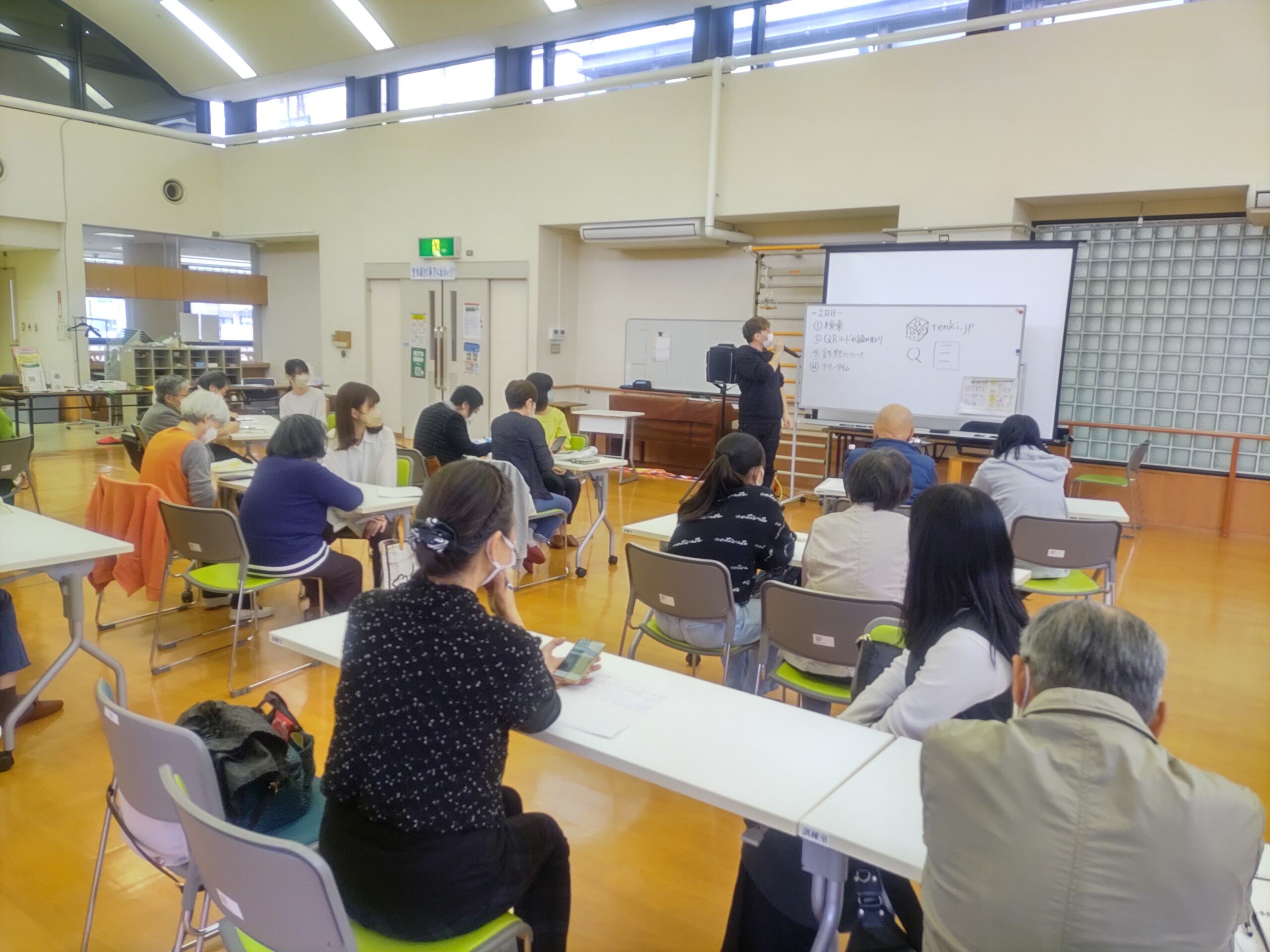
Photo Courtesy: Bosai Community Network
The Bosai Community Network's first project as an organization was disaster preparedness education for international students, who are often vulnerable to information shortages. Mr. Masumura, the chairman of the board of directors, used to work at a study support center for foreign students in the Shinagawa ward. One day he asked one of the foreign students if they were OK with the previous earthquake. The foreign student replied, "I was scared. I was afraid of not knowing anything about earthquakes", and this was the impetus of the Bosai Community Network's support for disaster preparedness education.
"In Japan, we learn about earthquakes and disasters at elementary schools and other opportunities. However, many foreigners who were born and raised in countries where earthquakes do not occur feel uneasy when they see (messages) on the news or in apps that say 'an earthquake is coming,' because they do not know how to cope with the situation. We give international students basic information about disasters that Japanese people would naturally know, such as hiding under a desk, putting out a fire, or opening a door," says Mr. Uto.
The Bosai Community Network also focuses on ICT support projects to ensure that there are no under-informed people in the field of ICT. They hold workshops on how to use the Tokyo Metropolitan Government Disaster Preparedness App and other disaster preparedness apps provided by municipalities, as well as courses for seniors on how to obtain and use disaster information using smartphones; now attended by more than 1,000 people a year.
"I started to work at a senior citizen welfare facility to learn about the connections between the government and welfare, that was the impetus for (starting the course). The facility was closed due to COVID-19, but we received many inquiries from users who did not know how to apply for vaccinations and could not get through to the phone number (to apply). As we taught (the users of the facility) one by one, we noticed that a certain number of them did not know how to turn on their smartphones or how to turn the volume up or down in the first place. Reducing the number of under-informed people also leads to disaster preparedness. Some seniors are now able to make payments with payment apps, as well as to use disaster preparedness apps," says Mr. Uto.
Communication Among Locals is Arising from Disaster Preparedness
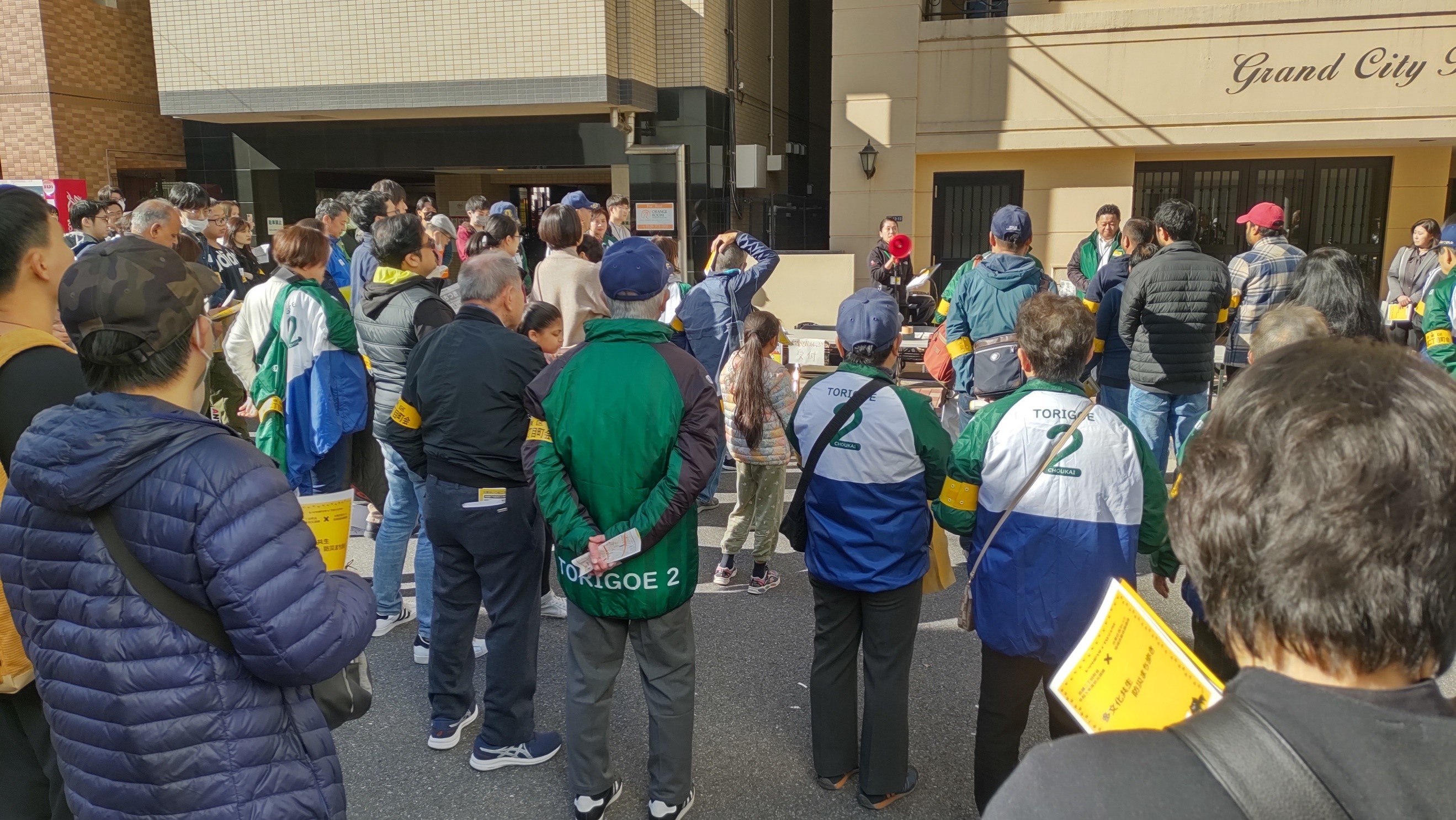
Photo Courtesy: Bosai Community Network
The Bosai Community Network is developing its activities as a disaster preparedness community project, focusing not only on "self-help", but also on "mutual help" in terms of disaster preparedness.
One of the most popular projects is Bosai Machi Aruki (Disaster Preparedness Town Walking), which is requested by local municipalities and neighborhood associations. Participants walk around the town, checking dangerous places in the neighborhood from a disaster preparedness point of view, as well as signs about disaster preparedness. They sometimes combine neighborhood association community cleanup activities with town walking.
"We sometimes receive consultations from neighborhood associations, such as, ‘There has been a foreign community in our town for years, but it is difficult for us to talk to them. Is there any way to start a conversation?'. Whenever we receive a request, we try to plan events that are easy for anyone to participate in, regardless of age or nationality, such as town walking."
In consultation with clients, the Bosai Community Network sometimes creates and distributes posters in plain Japanese for events, or to make approaches to key foreign personnel. In the past, Mr. Uto attended a small Indian temple where people of Indian origin prayed every morning, and distributed posters about the town walking program written in plain Japanese.
"Even if we don't have the opportunity to have contact with each other daily, when a disaster occurs, we must cooperate, regardless of whether we are Japanese or foreign nationals. We try to facilitate two-way communication at every event, such as town walking. We, who come from the outside, can only create opportunities, so I think it is up to us to make sure that we can connect with those opportunities afterward. We are always happy when we receive feedback after events saying that local foreign residents and Japanese had a mochi-pounding event together, or that they are going to hold evacuation drills by themselves with foreign residents," says Mr. Uto.
Creating Visible Connections for Mutual Aid in Times of Emergency
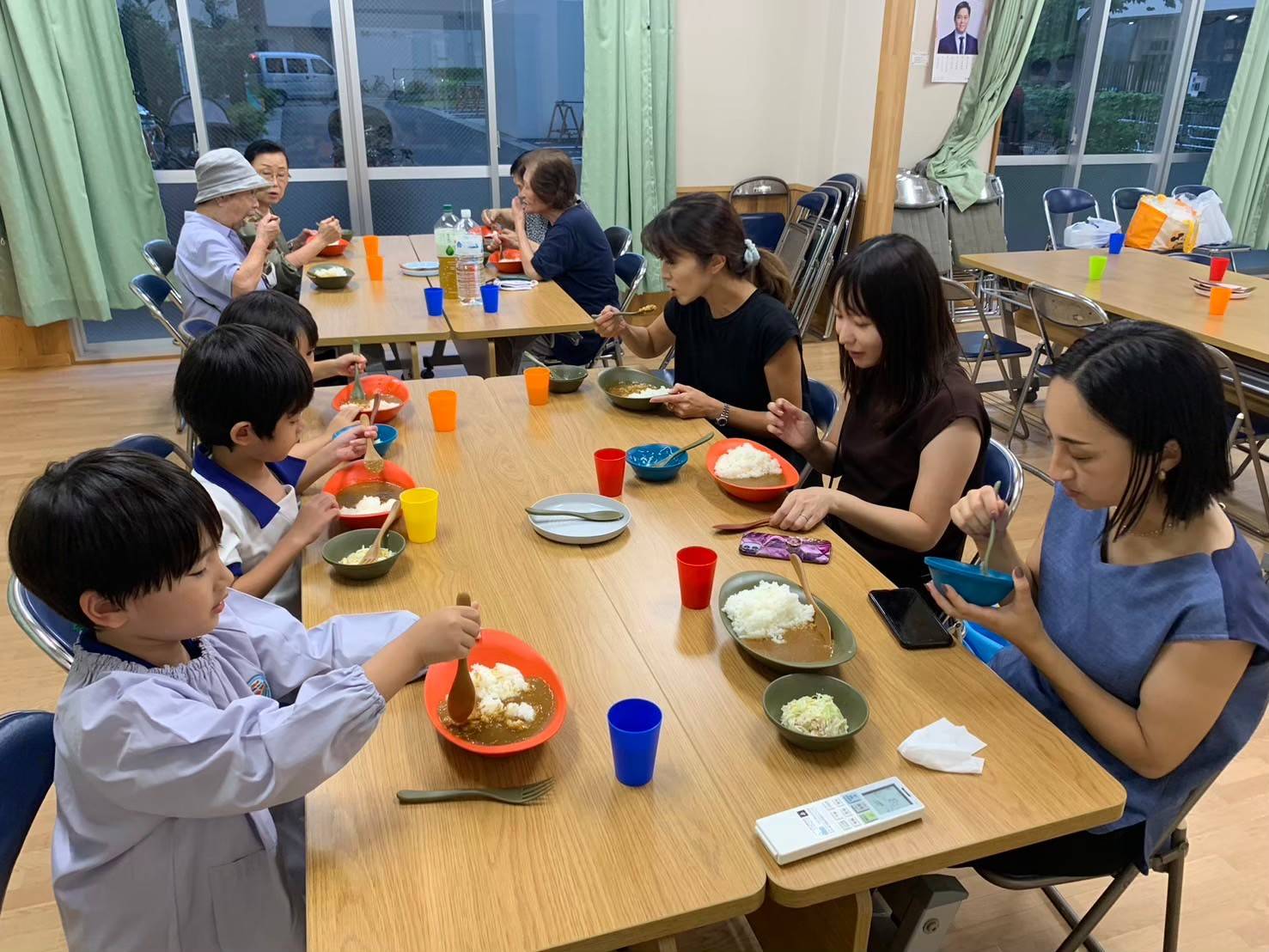
Photo Courtesy: Bosai Community Network
"When we work in a community, we feel that the issues facing that community and every person living there, come to the surface," says Mr. Uto. People are living in communities that need assistance in evacuating in the event of a disaster, but as local communities have grown weaker, it has become difficult for residents to know where these people are living.
On one occasion, a visually impaired person participated in a disaster preparedness town walking tour. During the group work after the walk, the participants discussed how they could help the visually impaired participant in her evacuation. After the event, she said, "I thought I would have no choice but to die if a catastrophe occurred that I could not cope with. But after participating in the town walk and listening to everyone's stories, I felt as if I was being told to live."
"I think it is important to face these issues within communities and think about these issues together; not after a disaster has occurred, but before it happens."
One of the activities conducted in Taito City is the "Bosai Everyone's Cafeteria (children's cafeteria)" to build face-to-face relationships to create a community where people can help each other in times of need. By using emergency rations in the meals provided by the Bosai Community Network during events, participants can become familiar with emergency rations regularly, rather than eating them for the first time in an emergency. The name of this community cafeteria is "Bosai" in katakana, rather than in kanji; so that people can casually participate. This cafeteria is a gathering place for local residents of all ages, from children to the elderly.
"(When participants) begin to talk to each other in the children's cafeteria, the over-involvement begins, but in a good way. A Ukrainian refugee child living in the neighborhood had a hard time adjusting to school. The child used to use this (cafeteria) saying 'I don't have a place to belong.' However, the child interacted with student volunteers in the cafeteria, was taught to study, and, through an introduction from someone in town, has now joined a karate club. In this way, I hope that each person's place in the community will gradually expand," says Mr. Uto.
Aiming to Create a Community Where Activities are Spontaneously Carried Out
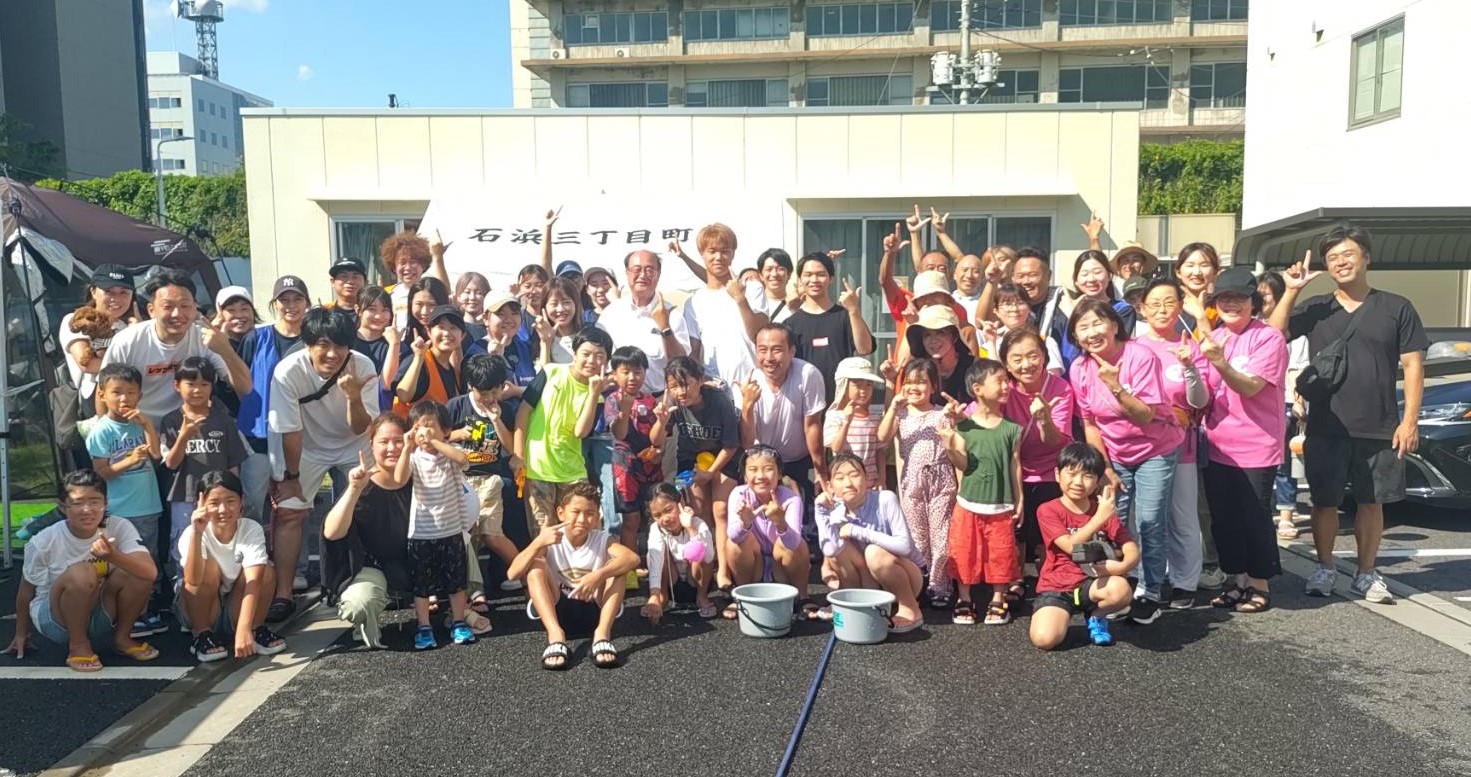
Photo Courtesy: Bosai Community Network
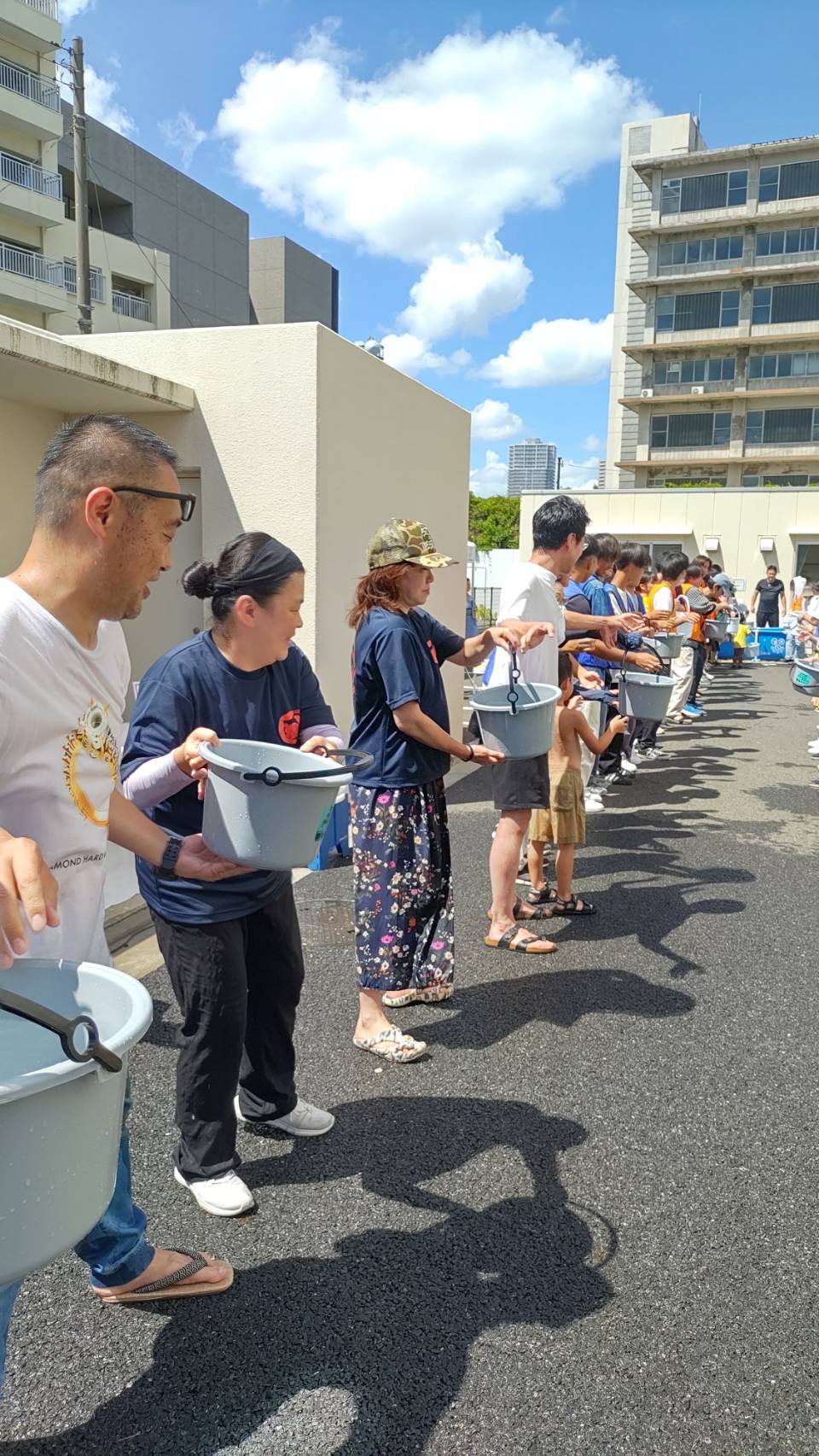
Photo Courtesy: Bosai Community Network
One of the activities that the Bosai Community Network is focusing on as an organization to make disaster preparedness closer to the public is the "Let's Bosai Fest". The Bosai Community Network rents parking lots of condominiums as venues, and participants conduct water discharge drills, VR experience of earthquakes, and cleaning up the community. By participating in drills and cleanups, children can be given tickets for yo-yo fishing and raffles, so they can participate with fun and excitement.
"The most exciting part is the bucket relay. Everyone in the community, regardless of age or nationality, carries buckets and competes for the best time. We planned the Bosai Fest because we came up with the idea that it would be fun to have a bucket relay with everyone in the back alleys of Tokyo. By naming the event "Let's Bosai" in a friendly way, and making it fun for children, I think it provides an opportunity for everyone to come together and enjoy disaster preparedness," says Mr. Uto. The Bosai Community Network aims to continue to increase the number of locations at which events are hosted, in the future.
The Bosai Community Network is vigorously engaged in a variety of activities. In the future, they aim to further the development of community building through disaster preparedness.
We would like to expand community building through disaster preparedness to various regions by developing a system that makes it interesting not only for what we do but also for whoever does it. We would like to work with people in the local communities and volunteer groups who support our activities, and we would like to promote human resource development so that eventually young university students will be able to take charge of our activities," says Mr. Uto. The circle of disaster preparedness activities involving many young people, foreigners, the elderly, and a diverse range of other people, is gradually beginning to expand.
*This article is based on information available at the time of the interview. For the latest information, please contact the organization directly.
